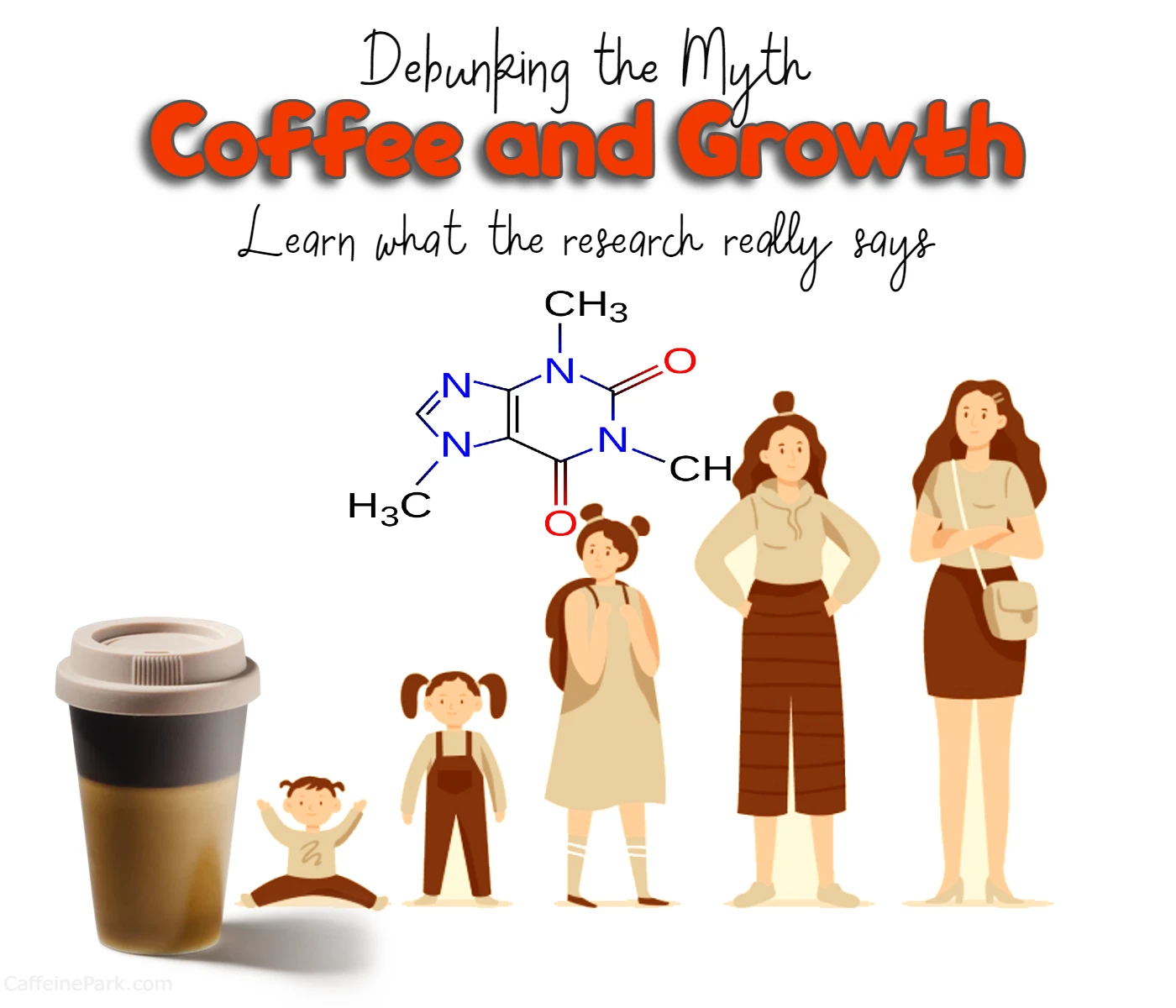
Caffeine Health Benefits
Caffeine is one of the most widely consumed psychoactive substances in the world, with millions of people relying on it for a quick energy boost every day. But beyond its ability to improve alertness and wakefulness, there is growing evidence to suggest that caffeine has a number of other health benefits as well. This article will explore some of the most compelling health benefits of caffeine, and explain why incorporating caffeine into your daily routine could be an excellent choice for maintaining and improving your overall health.
One of the most well-known benefits of caffeine is its ability to improve cognitive performance and mental alertness. Studies have shown that caffeine can improve working memory, reaction time, and focus, making it an excellent choice for anyone who needs to stay alert and productive throughout the day. Additionally, caffeine has also been shown to improve mood and reduce feelings of fatigue, making it a great option for people who struggle with depression or anxiety.
Another area in which caffeine has shown significant benefits is in the realm of physical performance. Caffeine is well-known for its ability to enhance athletic performance by increasing endurance, power, and strength. But beyond these performance-enhancing benefits, caffeine has also been shown to reduce the risk of certain health conditions, including type 2 diabetes, heart disease, and certain types of cancer. With so many health benefits, it’s easy to see why incorporating caffeine into your daily routine could be an excellent choice for maintaining and improving your overall health.
25 Possible Caffeine Health Benefits
Caffeine is one of the most commonly consumed substances in the world, and it is found in coffee, tea, chocolate, energy drinks, and many other products. Despite its reputation for causing jitters and anxiety, caffeine has many potential health benefits when consumed in moderation. In this article, we will explore 25 possible caffeine health benefits that have been supported by scientific studies and research. From improving mental alertness and physical performance to reducing the risk of certain diseases to promoting longevity, there is no shortage of reasons to consider incorporating caffeine into your daily routine.
- Boosts Mental Alertness and Concentration
- Increases Physical Performance and Endurance
- Enhances Mood and Decreases Fatigue
- Reduces the Risk of Parkinson’s Disease
- Lowers the Risk of Type 2 Diabetes
- Decreases the Risk of Liver Diseases
- Protects against Alzheimer’s and Dementia
- Decreases the Risk of Depression
- Reduces the Risk of Certain Cancers
- Decreases the Risk of Heart Diseases
- Improves Skin Health
- Boosts Metabolism and Supports Weight Loss
- Increases Brain Function and Memory
- Enhances Physical and Cognitive Performance in Athletes
- Decreases the Risk of Gout
- Reduces Inflammation and Pain
- Supports Healthy Aging
- Boosts Energy and Reduces Fatigue
- Promotes Healthy Hydration
- Enhances Focus and Productivity
- Supports Healthy Weight Management
- Reduces the Risk of Stroke
- Supports Healthy Liver Function
- Boosts the Immune System
- Increases Concentration and Mental Clarity.
However, it is important to note that while caffeine consumption has potential health benefits, it can also have negative effects such as increased anxiety, heart palpitations, and sleep disturbances when consumed in excessive amounts. It is recommended to consume caffeine in moderation and to consult a healthcare professional for personalized advice.
Caffeine and Cancer
Caffeine is a stimulant that is commonly found in coffee, tea, soft drinks, energy drinks, and chocolate. Many people consume caffeine regularly for its ability to increase alertness, concentration, and energy levels. However, there have been concerns about the link between caffeine and cancer.
the evidence on caffeine and cancer is mixed and more research is needed to determine the true relationship between the two. Until then, it’s important to consume caffeine in moderation and to be mindful of other factors that may increase your risk of cancer, such as smoking, a sedentary lifestyle, and an unhealthy diet.
If you have concerns about the potential link between caffeine and cancer, talk to your doctor. They can help you understand the risks and benefits of caffeine consumption and provide personalized advice based on your individual health needs.
In conclusion, while there is still much to be learned about the relationship between caffeine and cancer, there is no need to completely eliminate caffeine from your diet. Consuming caffeine in moderation, as part of a healthy and balanced lifestyle, is likely to provide health benefits without increasing your risk of cancer.
Caffeine and Stroke
Caffeine is a stimulant that is widely consumed globally. It is present in coffee, tea, soft drinks, chocolate, and some medications. While caffeine is well-known for its ability to increase alertness and enhance focus, it is also linked to various health benefits.
Benefits of Caffeine for Stroke Risk
Studies have shown that moderate caffeine consumption may reduce the risk of stroke. Caffeine is believed to improve blood flow and reduce the risk of clots that can lead to stroke. Additionally, caffeine can help lower inflammation and improve endothelial function, which are important factors in reducing the risk of stroke.
Research also suggests that caffeine may help reduce the risk of stroke in people with high blood pressure. High blood pressure is a major risk factor for stroke, and caffeine has been shown to help lower blood pressure levels.
Risks of Caffeine for Stroke
Despite the potential benefits, it is important to note that excessive caffeine consumption can increase the risk of stroke. Large doses of caffeine can increase blood pressure, which can increase the risk of stroke. Additionally, caffeine can increase heart rate and increase blood flow, which can be dangerous for people with certain heart conditions.
It is also important to note that people who are sensitive to caffeine may experience side effects such as anxiety, palpitations, and restlessness. These side effects can increase the risk of stroke in some people.
In conclusion, while moderate caffeine consumption may have some health benefits, it is important to consume it in moderation and be aware of the potential risks. People with high blood pressure, heart conditions, or sensitivity to caffeine should speak with their doctor before increasing their caffeine intake.
Caffeine and Heart Health
Caffeine, a naturally occurring stimulant found in coffee, tea, and chocolate, has been a popular topic of research for its potential health benefits. One of the areas of focus is caffeine’s impact on heart health. In this section, we will explore the potential health benefits of caffeine for heart health and some of the factors to consider.
Caffeine and Cardiovascular Health
Studies have shown that moderate caffeine consumption can have a positive impact on cardiovascular health. For example, research has found that moderate caffeine consumption may reduce the risk of stroke, lower blood pressure, and improve blood flow. This is because caffeine stimulates the heart and increases blood flow, which can lead to improved cardiovascular health. However, it is important to note that excessive caffeine consumption can have the opposite effect, so moderation is key.
Caffeine and Cholesterol Levels
Caffeine has also been shown to have a positive impact on cholesterol levels. Research has found that caffeine consumption can increase levels of HDL cholesterol, which is known as the “good” cholesterol. This can lead to a lower risk of heart disease and stroke. On the other hand, excessive caffeine consumption has been linked to increased levels of LDL cholesterol, which is the “bad” cholesterol. Therefore, moderation is crucial when it comes to caffeine consumption and heart health.
Factors to Consider
While caffeine may have potential health benefits for heart health, there are also factors to consider. For example, individuals with heart conditions or high blood pressure should talk to their doctor before consuming caffeine. Additionally, it is important to consider the source of caffeine as well as the amount consumed. For example, coffee contains antioxidants that can be beneficial for heart health, but energy drinks can contain high levels of sugar and other additives that can be harmful.
In conclusion, moderate caffeine consumption may have potential health benefits for heart health, including reduced risk of stroke, lower blood pressure, and improved cholesterol levels. However, it is important to consider individual factors and consume caffeine in moderation for the best results.
Caffeine and Type 2 Diabetes
Caffeine is a naturally occurring stimulant found in many beverages, including coffee and tea, as well as in some foods and supplements. While excessive caffeine intake can have negative effects on health, moderate consumption has been shown to have some health benefits. One area in which caffeine has been studied for its potential benefits is in the prevention and management of type 2 diabetes.
Benefits of Caffeine for Type 2 Diabetes
Studies have shown that moderate caffeine intake may have a beneficial impact on blood sugar control and insulin sensitivity, two key factors in the development and management of type 2 diabetes. In one study, researchers found that consuming 3-4 cups of coffee per day was associated with a lower risk of developing type 2 diabetes. Additionally, other studies have suggested that caffeine may help improve insulin sensitivity and glucose tolerance, which can help regulate blood sugar levels in those with type 2 diabetes.
It’s important to note that the effects of caffeine on blood sugar control can vary between individuals and may be influenced by factors such as weight, age, and lifestyle. Additionally, the positive effects of caffeine on blood sugar control may be offset by other negative effects, such as increased stress and sleep disturbances. It is also important to consult with a healthcare provider before making any significant changes to caffeine consumption, especially for those with existing health conditions or taking medications that may interact with caffeine.
In conclusion, while moderate caffeine consumption may have some beneficial effects on blood sugar control and insulin sensitivity in those with type 2 diabetes, more research is needed to fully understand the impact of caffeine on this population. It is always important to consult with a healthcare provider before making any changes to caffeine intake and to consider both the potential benefits and risks when making decisions about caffeine consumption.
Caffeine and Blood Pressure
It is known to increase alertness and reduce fatigue, but it can also impact your cardiovascular system. One of the ways it can affect your health is by elevating your blood pressure.
Studies have shown that consuming moderate amounts of caffeine (100-200 mg) can result in a temporary increase in systolic and diastolic blood pressure. The effect is most pronounced in people who don’t regularly consume caffeine and those who have high blood pressure. The increase in blood pressure is short-lived, typically lasting only a few hours.
However, long-term, high consumption of caffeine can lead to a sustained increase in blood pressure. This is particularly true for individuals who consume more than 500 mg of caffeine per day, which is the equivalent of about 4-5 cups of coffee. If you have high blood pressure, it’s important to limit your caffeine intake or eliminate it from your diet altogether.
It’s worth noting that there are some factors that can influence the relationship between caffeine and blood pressure, including age, gender, weight, and genetics. Some people are more sensitive to the effects of caffeine than others, and the same dose of caffeine can have different effects on different people. To avoid adverse effects, it’s important to monitor your blood pressure regularly and adjust your caffeine consumption as needed.
Caffeine and Heart Attacks
Over the years, there has been ongoing research on the effects of caffeine on heart health. While some studies have shown a potential link between caffeine consumption and heart attacks, others have found that caffeine may have heart-protective benefits.
One of the ways caffeine may benefit heart health is by increasing blood flow. Caffeine is a vasodilator, meaning it widens the blood vessels, allowing for better blood flow. This increased blood flow can provide more oxygen and nutrients to the heart, helping to prevent heart disease and stroke.
Additionally, caffeine has been shown to improve the function of blood vessels, making them more flexible and less prone to clogging. This can reduce the risk of heart attacks and strokes, particularly in people who are at risk for these conditions.
Studies have also found that moderate caffeine consumption may reduce the risk of developing heart disease. One study found that drinking 2-3 cups of coffee per day was associated with a 25% reduction in the risk of heart disease. Another study found that drinking 4-5 cups of coffee per day was associated with a 20% reduction in the risk of heart disease.
In conclusion, moderate caffeine consumption can have positive effects on heart health, such as increasing blood flow, improving blood vessel function, and reducing the risk of heart disease. However, excessive caffeine intake should be avoided as it can increase the risk of heart attacks and strokes.
Caffeine’s Impact on Physical Performance and Exercise
Caffeine is widely known as a stimulant and is commonly used as a pre-workout supplement. Many people believe that caffeine improves physical performance and endurance during exercise, and research has shown that there is some truth to this belief.
One study found that caffeine supplementation improved physical performance, including time to exhaustion and power output, in both trained and untrained individuals. The study concluded that caffeine is an effective ergogenic aid for enhancing both endurance and strength performance.
Caffeine is thought to improve physical performance by increasing the release of adrenaline, a hormone that prepares the body for intense physical activity. This increased adrenaline release leads to an increase in alertness, focus, and energy levels, which can enhance athletic performance. Additionally, caffeine has been shown to reduce perceived exertion, meaning that individuals who consume caffeine may feel that they are able to exercise harder and longer than they would without it.
In conclusion, the evidence suggests that caffeine can indeed improve physical performance and exercise. However, it is important to remember that individual responses to caffeine can vary, and too much caffeine can have negative effects, such as jitters, nervousness, and disrupted sleep patterns. Additionally, it is always recommended to speak with a doctor before starting any new supplement regimen, including caffeine.
Caffeine and Cognitive Function
Caffeine is one of the most widely consumed psychoactive substances in the world and is well known for its ability to enhance alertness and reduce fatigue. Many people consume caffeine in order to improve their mental performance and cognitive function, especially when facing a challenging task or when needing to stay awake. In this section of the blog post, we will discuss the impact of caffeine on cognitive function and the potential health benefits associated with its consumption.
How Does Caffeine Improve Cognitive Function?
Caffeine works by blocking the action of adenosine, a neurotransmitter that promotes sleep and suppresses arousal. By blocking adenosine, caffeine increases the release of other neurotransmitters such as dopamine and norepinephrine, which can improve mood, alertness, and cognitive performance. Additionally, caffeine increases the release of glucose from the liver, providing the brain with a source of energy that can enhance cognitive function.
Potential Health Benefits of Caffeine and Cognitive Function
Studies have shown that moderate caffeine consumption can enhance cognitive function, particularly in tasks that require attention, memory, and reaction time. This includes both short-term and long-term effects, with the largest benefits being seen in those who are not regular caffeine consumers. Additionally, caffeine has been shown to have potential neuroprotective effects, reducing the risk of developing certain neurological disorders such as Alzheimer’s disease and Parkinson’s disease.
In conclusion, caffeine can be a beneficial substance for cognitive function, as long as it is consumed in moderation. It is important to note that excessive caffeine consumption can lead to negative side effects such as anxiety, insomnia, and increased heart rate, so it is recommended to limit caffeine intake to moderate levels.
Caffeine and Mood
For many people, caffeine is a part of their daily routine, used as a pick-me-up to help increase energy and improve focus. However, caffeine can also have an impact on mood, both positively and negatively. In this section, we will explore the relationship between caffeine and mood and discuss the potential benefits and drawbacks of caffeine consumption.
The Positive Effects of Caffeine on Mood
One of the most well-known benefits of caffeine is its ability to improve alertness and energy levels. This increase in energy can lead to a better mood and improved motivation, making it easier to tackle tasks and feel more productive. Additionally, caffeine has been shown to improve cognitive function, helping to boost memory and focus.
Caffeine can also have a positive effect on mood by reducing feelings of depression and anxiety. Studies have shown that moderate caffeine consumption can help to regulate mood and reduce symptoms of depression and anxiety in some individuals. This may be due to caffeine’s ability to affect the levels of neurotransmitters in the brain, including dopamine and serotonin, which are associated with feelings of happiness and well-being.
The Negative Effects of Caffeine on Mood
While caffeine can have a positive impact on mood in moderation, overconsumption can lead to negative effects. Caffeine is a stimulant, and as such, it can increase feelings of nervousness and anxiety. This can lead to feelings of jitters, restlessness, and insomnia, all of which can have a negative impact on mood.
In addition, caffeine can interfere with the natural sleep-wake cycle, leading to disrupted sleep patterns and fatigue. This can result in feelings of irritability and low mood, which can impact overall well-being. Caffeine can also trigger symptoms of pre-existing mood disorders, such as depression and anxiety, and exacerbate existing symptoms.
In conclusion, caffeine has both positive and negative effects on mood. The key to reaping the benefits of caffeine while avoiding the negative side effects is to consume it in moderation and to be mindful of its impact on your individual mood and well-being. As with any substance, it is important to listen to your body and seek professional help if you are experiencing negative effects.
Caffeine and Weight Management
Caffeine is a naturally occurring stimulant that is found in many foods and drinks, including coffee, tea, and energy drinks. One of the reasons caffeine is so popular is because it has been shown to have a positive impact on weight management.
Studies have found that caffeine can help to increase metabolism, which can help the body burn more calories. Additionally, caffeine has been shown to decrease appetite and help with feelings of fullness, making it easier to stick to a healthy diet. Additionally, some research has found that caffeine can help to mobilize fatty acids from adipose tissue, which can lead to decreased body fat.
However, it’s important to note that caffeine can have negative effects on the body if consumed in large amounts. For example, too much caffeine can lead to increased anxiety, jitters, and insomnia, which can have negative impacts on weight management goals. It’s also important to remember that the weight loss benefits of caffeine can vary from person to person and depend on individual factors such as age, weight, and overall health. To maximize the benefits of caffeine for weight management, it’s important to consume it in moderation and to pair it with a balanced diet and regular exercise routine.
Final Thoughts
In conclusion, caffeine, the most commonly consumed psychoactive substance in the world, has a number of potential health benefits when consumed in moderation. These benefits include improved physical performance, increased alertness, and concentration, reduced risk of certain diseases such as Parkinson’s and Type 2 Diabetes, and lower mortality rates after a heart attack. However, it is important to remember that excessive caffeine consumption can have negative effects on health, including anxiety, jitters, and sleep disturbances.
To reap the benefits of caffeine while avoiding its negative side effects, it is recommended to limit daily caffeine intake to no more than 400 mg, or about 4 cups of coffee. Additionally, it is important to consider the source of caffeine, as natural sources such as coffee and type of tea contain antioxidants and other health-promoting compounds that are not present in energy drinks and other highly caffeinated products.
In conclusion, while caffeine has a number of health benefits, it is important to consume it in moderation and consider the source of caffeine. By doing so, individuals can enjoy the benefits of caffeine while minimizing its potential negative effects.
FAQs
Caffeine is a central nervous system stimulant and a naturally occurring substance found in plants like coffee, tea, and cocoa. It is commonly consumed as a beverage or as an ingredient in energy drinks, dietary supplements, and medications.
Caffeine stimulates the brain and nervous system, causing increased alertness and decreased fatigue. It can also increase heart rate and metabolism and may enhance physical performance and mental acuity.
The recommended safe limit for caffeine consumption is 400 mg per day for most adults. However, this amount can vary depending on individual tolerance, age, and health status. It is recommended to consult a healthcare professional for personalized advice.
Some possible health benefits of caffeine consumption include reducing the risk of certain diseases like Parkinson’s, Type 2 diabetes, and liver disease, as well as improving physical performance and cognitive function.
Side effects of excessive caffeine consumption can include restlessness, insomnia, increased heart rate, anxiety, and digestive issues. It is important to consume caffeine in moderation and to be mindful of individual tolerance levels.
Read More:





